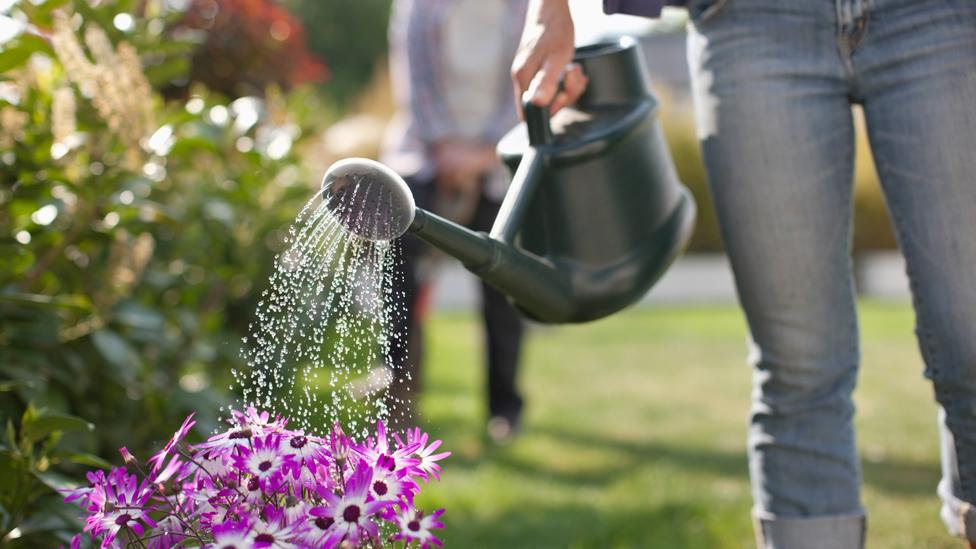Hosepipe ban: Drought to be declared on Friday, insiders say
- Published
- comments
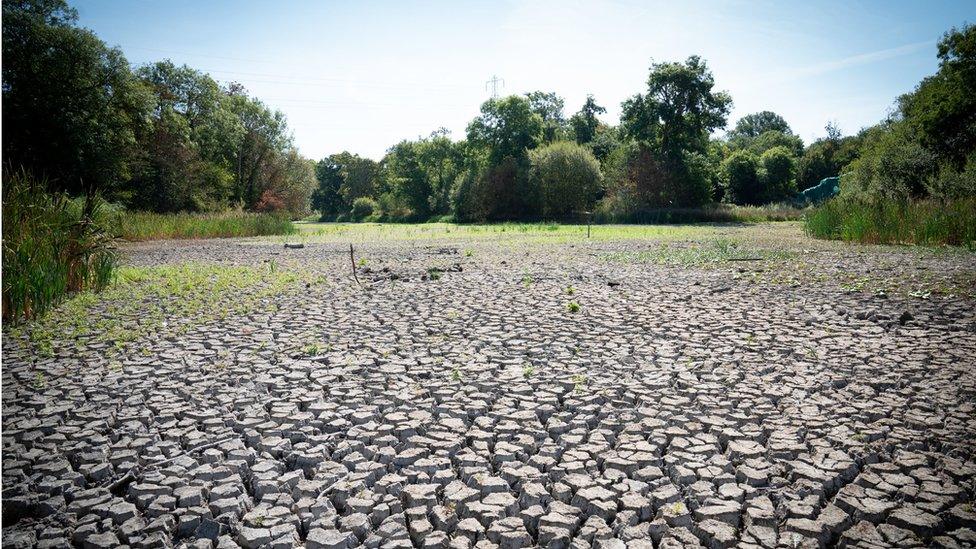
A dried up lake in Wanstead Park, north-east London
Insiders in the water industry say they expect an official drought to be declared on Friday.
That will not come as a great surprise to some. Fields and parks are scorched and many rivers and ponds have run dry.
Even the source of the Thames in Cirencester is dry.
So what will it mean if the Environment Agency (EA) declares a drought?
It means another level of control over water supply kicks in.
The EA will monitor the impacts of the drought, external and make sure water companies stick to drought plans.
It will also make sure abstractors do not take too much water out of rivers.
Water companies can, however, apply for drought orders to abstract more water from rivers.

The dried bed of the River Thames in Kemble, Gloucestershire
Declaring a drought means water companies should impose restrictions on non-essential domestic and commercial water use, the EA says.
All water companies have drought plans agreed with the government.
However, it is the firms which decide when or if to implement further temporary restrictions - such as hosepipe bans.
Thames Water - London's biggest water firm - says it will introduce a ban "within weeks". But Affinity Water and SES Water say hosepipe bans will be unlikely.
The reason for that is partly where the water comes from. Affinity and SES rely on aquifers - underground rocks that store water, whilst Thames Water relies more on rivers and reservoirs.
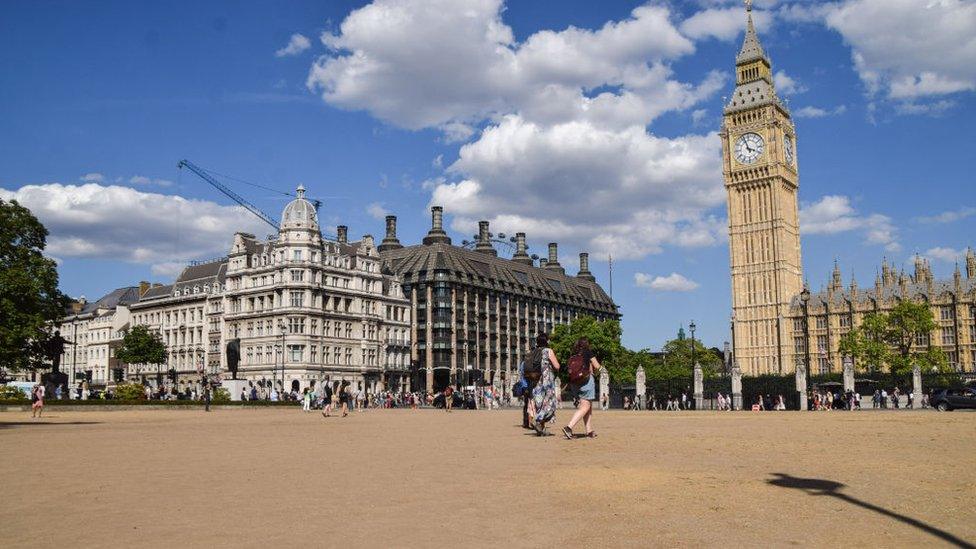
The grass has dried at Parliament Square in central London
Hosepipe bans reduce water demand by about 5%. They are seen as a blunt instrument with many loop holes.
Leakage rates and usage also play a part in how much water is available.
Thames Water leaks almost 24% of its water. It admits this is "not acceptable" and says it has a plan to fix it.
SES Water has a 12% leakage rate.
The whole sector is committed to cutting leaks by a half by 2050.
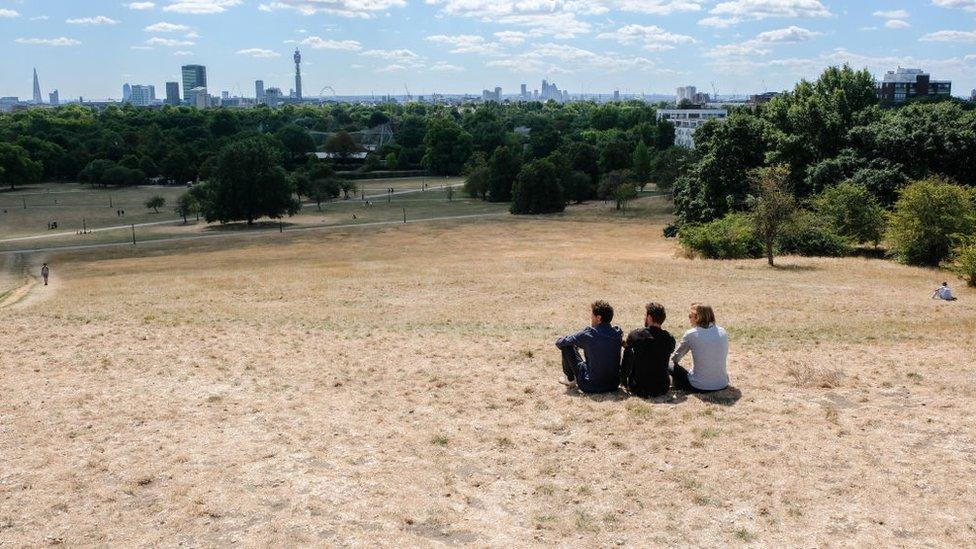
The landscape at Primrose Hill in Regent's Park in central London has also been affected
The water industry watchdog, Ofwat, said: "Leakage levels are much lower now than they used to be. Across England and Wales leakage levels have reduced by more than a third since the mid-1990s.
"This saves enough water to supply the daily needs of 11 million people - or every household in London, Birmingham and Wales combined.
"Your water company has a binding target to reduce the amount of water lost through leaks on its network.
"We set each water company a target and make sure that it meets them. We take action against any company that does not meet its targets."
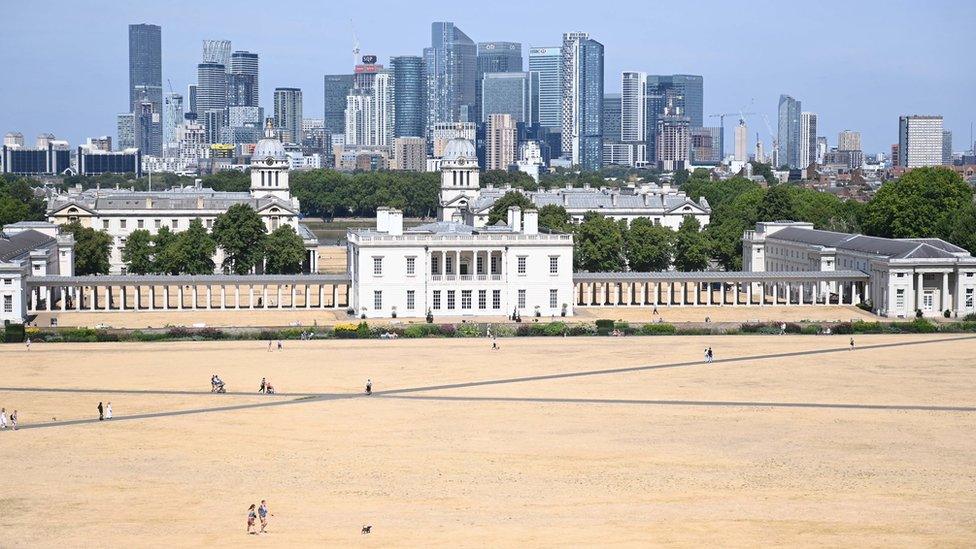
Parched grass in Greenwich Park in south-east London
Of course, many think the industry is not moving fast enough or investing enough to reduce leaks.
Longer-term, the National Infrastructure Commission say with a warming climate, water companies must reduce leakage, build more reservoirs and ensure customers to use less water.
One way to do that is by introducing more metering.
SES Water said: "We plan to meter 90% of our customers by 2025, which is one of the most effective ways of helping our customers to understand more about their water usage and how they can be more water efficient."
Using less water is something all of us will have to get used to.
Related topics
- Published9 August 2022
